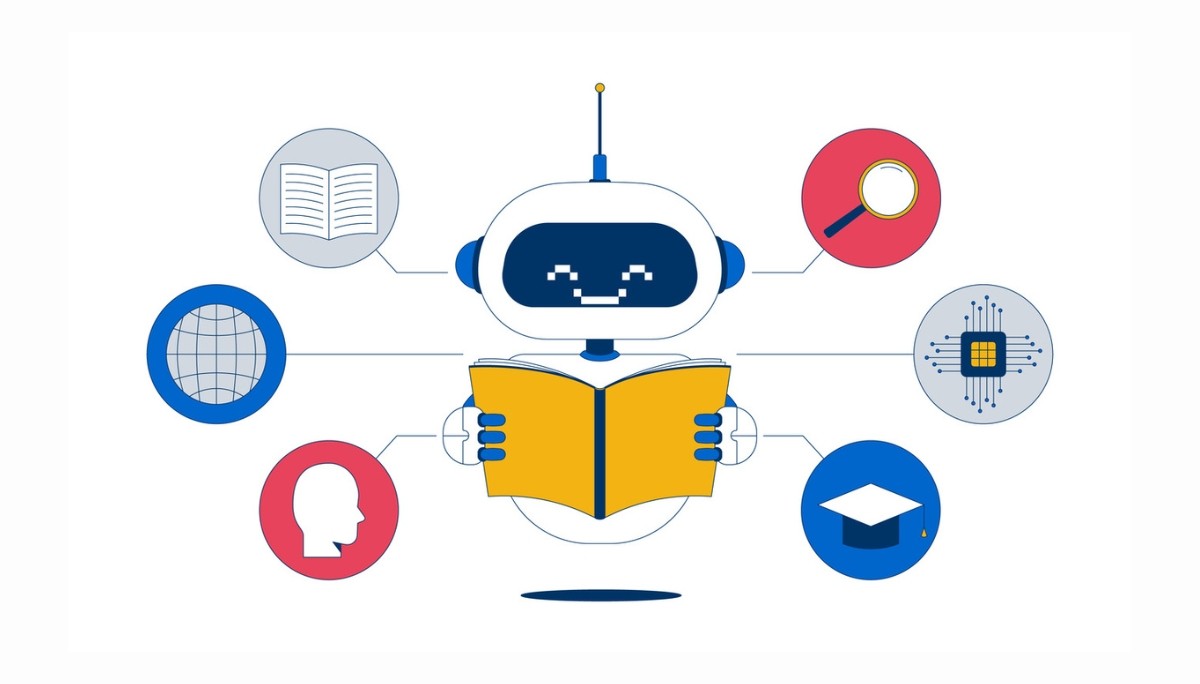Responsible AI refers to the ethical development and deployment of artificial intelligence systems. It ensures that AI aligns with human values and societal norms. In this article, we will explore the principles and practices that make AI responsible and why these are crucial for building trust and maintaining accountability in AI applications. If you’re a recruiter or tech leader looking to build teams that prioritize ethics in AI, Fonzi AI can help you find talent who understands the importance of responsibility in innovation and are equipped to put those principles into action.
Key Takeaways
Responsible AI prioritizes ethical considerations and alignment with human values to foster trust and accountability in AI systems.
Core principles of responsible AI include fairness, transparency, reliability, privacy, and inclusiveness to mitigate biases and ensure equitable outcomes.
Organizations must integrate ethical considerations throughout the AI development lifecycle and educate stakeholders to promote responsible AI practices.
Understanding Responsible AI

Responsible AI is an approach to developing and deploying AI systems that are not only technically proficient but also ethically aligned with human values and socially beneficial. This concept is essential for fostering trust among stakeholders, ensuring accountability, and adhering to ethical standards in AI development. Prioritizing responsible artificial intelligence allows organizations to address stakeholder concerns and contribute positively to society.
Ethical AI aligns AI efforts with human values to ensure societal benefits and address stakeholder concerns. This alignment is crucial for advancing responsible AI practices and creating AI systems that are both effective and morally sound.
Core Principles of Responsible AI

To navigate the complex landscape of responsible AI, several core principles must be adhered to. These include:
Fairness
Reliability and safety
Privacy and security
Inclusiveness
Transparency
Accountability.
These principles form the bedrock of responsible AI practices and ensure that AI systems are developed ethically and used responsibly.
Fairness and Inclusivity
Fairness by design is crucial in developing AI systems, requiring stakeholder involvement to identify biases and ensure equitable treatment. Bias in AI can emerge from data that fails to represent diverse populations, leading to inequitable outcomes. Strategies to mitigate bias, such as diversifying data sets and adjusting algorithms, are essential to address these disparities.
Implementing responsible AI requires focusing on fairness and inclusivity to address issues like bias and privacy breaches. This ensures AI systems serve all demographic groups equitably and avoid unintended consequences.
Transparency and Explainability
Transparency in AI entails ensuring that decision-making processes are understandable to stakeholders, enhancing trust. It is essential for building trust among employees and stakeholders by making AI models’ behavior comprehensible. Key ethical principles for AI development include:
Transparency
Fairness
Non-discrimination
Robust data protection.
Enhancing transparency fosters a better understanding of AI systems and decisions, crucial for maintaining trust and accountability in AI governance. This approach can build trust and enhance transparency in the processes involved.
Reliability and Safety
Reliable AI systems must respond appropriately to unexpected situations, ensuring they do not pose a risk. Consistent performance is crucial for building trust and user confidence in AI systems. Safety measures should be implemented to safeguard AI systems against potential risks and harmful outcomes.
These measures ensure AI systems operate reliably and safely, maintaining trust and preventing harmful outcomes and positive outcomes.
Privacy and Security
AI systems must comply with privacy laws, protecting personal and business information. Differential privacy involves techniques that safeguard individual data while allowing for analysis. Incorporating responsible AI principles into existing workflows helps organizations prepare for regulatory changes and avoid disruptive adjustments.
Prioritizing privacy and security helps organizations protect sensitive data and comply with legal frameworks, fostering trust and accountability.
Implementing Responsible AI Practices

To advance responsible AI, organizations must adopt practical steps that emphasize ethical considerations throughout the AI lifecycle. This includes ensuring fairness, accountability, and transparency in AI systems, which will be elaborated on in the following subsections.
Developing Ethical AI Principles
Organizations should ensure that their ethical AI principles reflect the diversity of perspectives within different groups in their teams. Involving diverse teams ensures these principles better reflect the organization’s core values and societal expectations. Adopting industry standards helps create accountability frameworks for AI systems.
These three principles are crucial for guiding the responsible development of AI technologies and ensuring that AI systems are aligned with ethical standards.
Educating Employees and Stakeholders
Training programs are essential for raising awareness about responsible AI among employees. These initiatives should focus on raising awareness of biases in AI and promoting ethical standards. Promoting ethical standards through model training helps ensure that employees understand their roles in creating responsible training data for AI systems.
Educating employees and stakeholders fosters a culture of ethical AI development and use within organizations.
Integrating Ethics in AI Development
Embedding ethical considerations throughout the AI development lifecycle helps ensure a fair and accountable AI system. Rather than addressing ethical issues only at the end, they should be integrated early on in the development process. Training programs on responsible AI can significantly enhance awareness and understanding among employees, leading to more ethical decision-making.
Regular audits of AI algorithms help identify and address potential biases, ensuring fairness. These practices foster accountability and ethical AI development.
Ensuring Human Oversight
The pursuit of responsible AI ensures that artificial intelligence enhances human decision-making rather than replacing it entirely, emphasizing the importance of human oversight. Ongoing human oversight in AI systems is crucial for maintaining accountability and addressing ethical issues as they arise, especially considering the role of humans in this process.
Continuous monitoring of AI decisions maintains accountability and allows timely interventions when ethical issues arise. Regular evaluation for regulatory compliance is essential throughout the development process to monitor these aspects.
Collaborating with External Entities
Utilizing a Responsible AI scorecard can facilitate better accountability and improve communication among stakeholders involved in AI projects. Organizations should seek third-party validation to confirm that AI technologies are unbiased and uphold ethical standards. Collaboration with external organizations enhances efforts to promote responsible AI practices globally.
These collaborations help organizations stay updated on responsible AI practices and contribute to broader initiatives in AI governance.
Fonzi: Revolutionizing AI Talent Hiring

Fonzi is a specialized marketplace designed specifically for recruiting AI engineers, focusing on enhancing the hiring speed and quality, and providing an effective development solution.
This section will introduce Fonzi’s innovative approach to AI talent hiring and its benefits for companies and candidates.
How Fonzi Works
The platform utilizes Match Day events to quickly connect companies with pre-vetted AI talent. Fonzi’s Match Day events connect companies with pre-vetted AI engineers who are ready to interview, streamlining the recruitment process.
Fonzi makes hiring fast, consistent, and scalable, with most hires happening within 3 weeks. This efficient process significantly improves the recruitment experience for both companies and candidates.
Unique Features of Fonzi
Fonzi offers structured evaluations and built-in fraud detection to enhance the hiring process. The platform incorporates advanced fraud detection systems to ensure the integrity and quality of its hiring process.
Fonzi delivers high-signal evaluations with built-in bias auditing, setting it apart from traditional hiring methods. These features make Fonzi a reliable and transparent tool for hiring top AI talent.
Benefits for Companies and Candidates
Fonzi ensures a positive experience for candidates while providing companies with well-matched AI professionals. Focusing on a positive candidate experience, Fonzi facilitates better matches between job seekers and employers, catering to both startups and larger enterprises.
Fonzi supports both early-stage startups and large enterprises by providing a candidate-friendly experience that promotes better matching of talent solutions. This approach ensures that companies find the right talent quickly and efficiently.
How to Use AI Ethically at Work

HR leaders play a crucial role in ensuring the responsible use of AI by balancing innovation with ethical accountability. Training frontline managers in ethical decision-making is vital for fostering responsible AI use within the workforce.
Ethical AI usage in the workplace ensures that technology aligns with organizational values and societal norms. By implementing responsible AI practices, organizations can create a positive impact and maintain trust with their stakeholders.
Summary
In conclusion, responsible AI is essential for developing and deploying AI systems that are safe, trustworthy, and aligned with human values. By adhering to core principles such as fairness, transparency, reliability, and privacy, organizations can advance responsible AI practices and foster trust among stakeholders.
Putting responsible AI into practice means more than just good intentions; it requires clear action. That includes educating your team, building in human oversight, and working with outside experts to ensure your AI systems are ethical, transparent, and aligned with societal values. When organizations commit to these steps, they can unlock AI’s potential while minimizing risk and earning public trust. For companies looking to build AI teams that prioritize these values from day one, Fonzi AI helps connect you with talent that understands both the technical and ethical sides of AI, so you’re not just building smarter systems, but better ones too.




